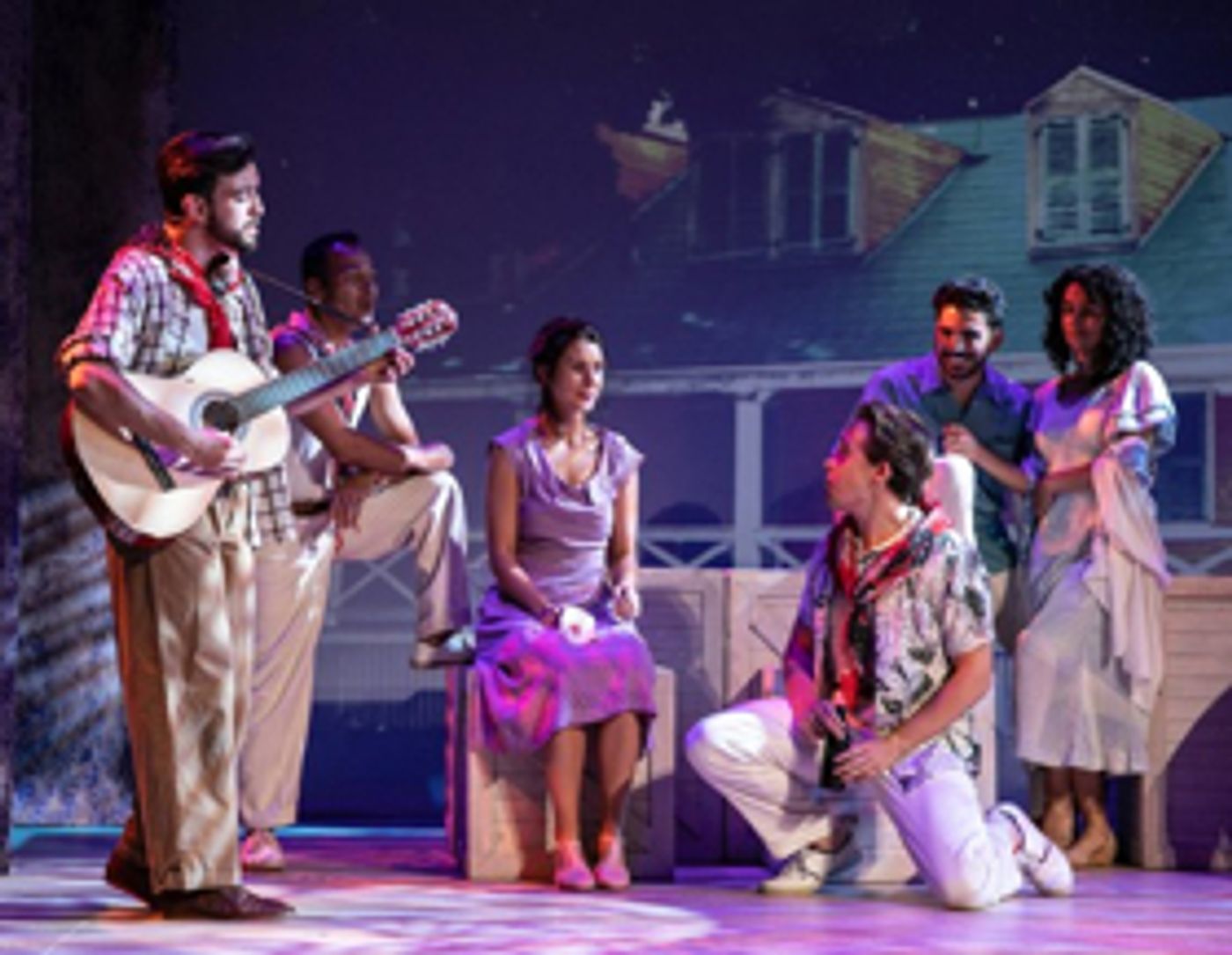Review: IT HAPPENED IN KEY WEST, Charing Cross Theatre
![]() It Happened In Key West, says the playbill, and there are times when you need to remember the title of this new musical, because - hard though it is to believe - it really did happen in Key West.
It Happened In Key West, says the playbill, and there are times when you need to remember the title of this new musical, because - hard though it is to believe - it really did happen in Key West.
Washed up after a shipwreck on an island off the coast of Florida (1930s Florida, with no condo in sight) ageing German "Count" Carl von Cosel gets a gig in the local hospital by dint of his many "degrees" from the University of Leipzig, and uses a mix of charm and money to find a place in the largely Cuban immigrant community.
 The persona adopted by the mysterious Count has its roots in Albert Einstein, in Wilhelm Reich, in the Gothic trope of the unhinged Teutonic professor. That he fits into that stereotype goes part of the way to his getting a free pass on some quack medicine - and a lot more.
The persona adopted by the mysterious Count has its roots in Albert Einstein, in Wilhelm Reich, in the Gothic trope of the unhinged Teutonic professor. That he fits into that stereotype goes part of the way to his getting a free pass on some quack medicine - and a lot more.
Following a prophecy from a bonkers aunt, the Count believes he has found the woman for whom he is destined in beautiful, naive, doomed Elena Hoyos and, despite the fact that she is married and young enough to be his granddaughter, an unlikely romance blossoms, curdling into obsession when Elena dies of tuberculosis.
Having visited her mausoleum for two years, the Count spirits the corpse away and, using ointments, plaster of Paris and piano wire, reconstructs his now proclaimed bride and lives with the cadaver for seven years before being discovered and charged with criminal offences.
He was found guilty, but discharged from custody and subsequently found much sympathy in the community - incredible as it sounds now. But death was seen differently in those days, as this passage concerning the Burden Park (Bolton) disaster of 1946 that claimed the lives of 33 people proves.
That said, if the gross-out tone of Weekend at Bernies is largely eschewed by writers Jill Santoriello, Jason Huza and Jeremiah James, it's not clear what tone they actually adopt. There's slapstick in an arm flying off the corpse and across the stage, pathos in the big Lloyd Webber-ish "Undying Love" number, apologist justification in "If You've Never Felt This Way", and philosophising in a speech by the Count's loyal friend Mario about how grief finds many forms. The book is as unsettled as poor Elena's corpse.
Wade McCollum brings plenty of star quality and singing chops to the role of the Count (although he clearly isn't sure how broadly to play the comic element of this self-described "new romantic musical comedy"), and Alyssa Martyn looks great and sings beautifully (when both alive and dead) as his love - but she can hardly do any acting, so underwritten is the role.
The principals get committed support from the ensemble, in which Sophia Lewis and Hannah McIver stand out as Elena's money-obsessed sisters. The band are excellent too, although it's a little disorienting for both instruments and voices to be amplified, giving the impression that everyone is throwing their voices halfway up the stalls. That mic-ing up detracts from some fine melodies and clever lyrics.
In the programme, it's claimed that the show is the product of seven years of hard work - strange, then, that director Marc Robin is so unclear about how he wants to tell this macabre but compelling story. Is it a Ripley's Believe It Or Not tale? Is it a freak show that might find a home on the Jeremy Kyle Show these days? Is it a social commentary on remote communities' susceptibility to the seductive qualities of sophisticated outsiders? Is it funny ha-ha or funny peculiar?
While we're perfectly capable of forming our own conclusions, it'd be nice to think that the writers and director had formed theirs first.
It Happened In Key West continues at the Charing Cross Theatre until 18 August.
Photo Darren Bell
Reader Reviews
Powered by
|
Videos

